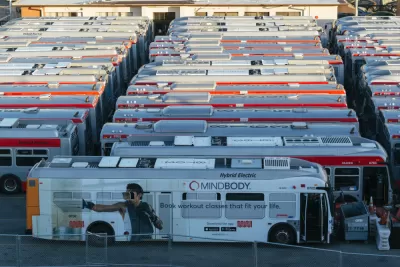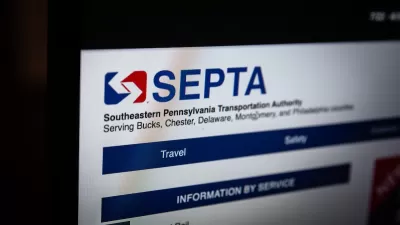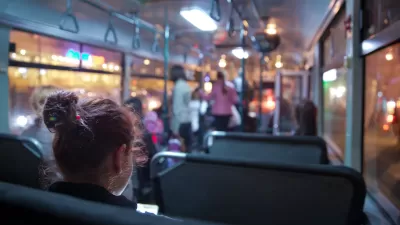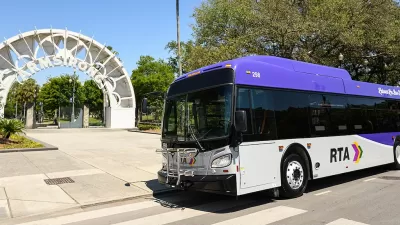The roots of the current U.S. transit crisis go deeper than the Covid-19 pandemic.

The ‘fiscal cliff’ facing many U.S. transit agencies, accelerated by drops in ridership and the end of pandemic-era assistance, is a sign of deeper, more structural problems, writes Daniel C. Vock in Route Fifty.
According to research from the Urban Institute, transit agencies need more diverse funding streams, rather than depending largely on one or two often volatile sources such as sales taxes and fare revenue. “Keeping a lid on operating costs has become even harder in the wake of the pandemic because of factors such as difficulty retaining drivers and higher material costs.”
The researchers have several recommendations for transit providers: “agencies can demonstrate that the public still wants robust transit service by, for example, creating rapid bus routes using dedicated lanes or redesigning their bus networks. They can look for a chance to redirect revenues from existing taxes, rather than pushing for raising new taxes. They can encourage dense development around their stations to promote future ridership and, in some cases, agency revenue. They could create and fill rainy day funds to smooth out future jolts to their revenue sources. And they could be ‘transparent about doomsday scenarios’ if they don’t receive more funding, with details about specific cuts that would result.”
FULL STORY: Looming ‘fiscal cliff’ shows deeper problems with transit funding, researchers say

Alabama: Trump Terminates Settlements for Black Communities Harmed By Raw Sewage
Trump deemed the landmark civil rights agreement “illegal DEI and environmental justice policy.”

Planetizen Federal Action Tracker
A weekly monitor of how Trump’s orders and actions are impacting planners and planning in America.

How Atlanta Built 7,000 Housing Units in 3 Years
The city’s comprehensive, neighborhood-focused housing strategy focuses on identifying properties and land that can be repurposed for housing and encouraging development in underserved neighborhoods.

In Both Crashes and Crime, Public Transportation is Far Safer than Driving
Contrary to popular assumptions, public transportation has far lower crash and crime rates than automobile travel. For safer communities, improve and encourage transit travel.

Report: Zoning Reforms Should Complement Nashville’s Ambitious Transit Plan
Without reform, restrictive zoning codes will limit the impact of the city’s planned transit expansion and could exclude some of the residents who depend on transit the most.

Judge Orders Release of Frozen IRA, IIJA Funding
The decision is a victory for environmental groups who charged that freezing funds for critical infrastructure and disaster response programs caused “real and irreparable harm” to communities.
Urban Design for Planners 1: Software Tools
This six-course series explores essential urban design concepts using open source software and equips planners with the tools they need to participate fully in the urban design process.
Planning for Universal Design
Learn the tools for implementing Universal Design in planning regulations.
Jessamine County Fiscal Court
Caltrans
Institute for Housing and Urban Development Studies (IHS)
City of Grandview
Harvard GSD Executive Education
Toledo-Lucas County Plan Commissions
Salt Lake City
NYU Wagner Graduate School of Public Service





























